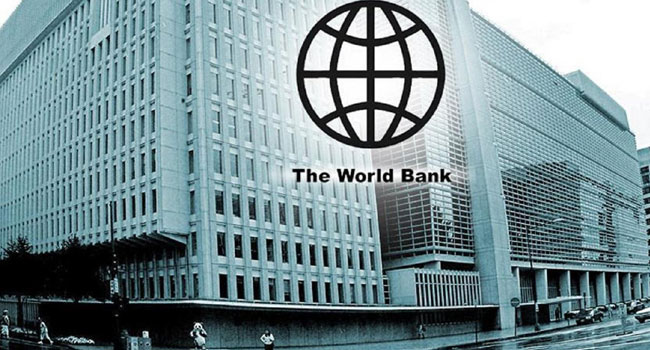Nigeria’s revenue from the manufacturing export sector has experienced a drastic decline, plummeting by 166 percent to ₦778.4 billion from its peak of ₦2 trillion in 2019.
A recently published report titled ‘Africa Pulse’ by the World Bank, obtained by Channels Television, reveals this downward trend since 2019. It highlights a significant decline to ₦960.7 billion in 2020, attributed to COVID-19, followed by a slight recovery to ₦1.15 trillion in 2021. However, 2022 saw a considerable drop to ₦781.1 billion, with another significant decrease to ₦778.4 billion recorded in 2023.
The report specifically attributes the country’s dwindling foreign trade to poor infrastructure and inefficient logistics, among other factors. It indicates that the cost of trade in Nigeria and Ethiopia is four to five times higher than that in the United States, primarily due to insecurity, elevated transportation costs, topography, and inadequate road infrastructure.
“Studies from the Africa region consistently find spatial differences in prices of imported goods (food and non-food) as well as non-traded agricultural staples, indicating that markets are not well-integrated, and retail prices of products are affected by distance.
“For instance, trade costs are four to five times higher in Ethiopia and Nigeria than in the United States, due to poor road infrastructure, low competition in the transportation sector, and topography,” it stated.
The report also highlighted that these distortions have led African producers to prefer selling locally rather than exporting their products.
Manufacturers and stakeholders in the export sector have expressed concerns that the challenging business environment in Nigeria is rendering local products uncompetitive on the global stage.
The release of the bank’s report follows the Nigerian Export Promotion Council (NEPC) urging Nigerian exporters to comply with the requirements for exporting products to various countries.
During a recent sensitization workshop aimed at boosting Nigeria’s export potential and strengthening trade ties with China, NEPC’s Executive Director, Nonye Ayeni, underscored the importance of exporters adhering to the General Administration of Chinese Customs (GACC).
Ayeni, who was represented by the North-Central Coordinator of the council, Samson Idowu, said that GACC has clear but stringent requirements for exporting products to China.
“Understanding the registration process, documentation and regulatory changes is paramount for successful export. Understanding the requirements set forth by GACC is crucial for Nigerian exporters to ensure smooth and successful trade with China,” she stated.
During the recent inauguration of the NSW project in Abuja, President Bola Tinubu highlighted that Nigeria experiences an annual loss of approximately $4bn due to import-export irregularities, primarily stemming from bureaucratic hindrances, particularly at the ports.
The president emphasized that the NSW project aims to facilitate 24-hour clearance of goods at the ports and streamline trade processes by introducing a digital platform for all import and export-related transactions.
“This initiative will link our ports, government agencies, and key stakeholders, creating a seamless and efficient system that will facilitate trade like never before. It will reduce the need to deal with multiple agencies in multiple locations to obtain the necessary papers, permits and clearances to complete their import or export processes,” Tinubu said.

